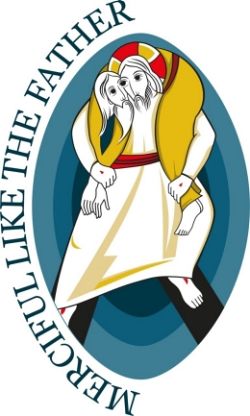Year of Mercy Reflection
Friday, Feb. 26, 2016
Editor’s note: During the Year of Mercy, the Intermountain Catholic will publish a short reflection each week written by a variety of Catholics in the Diocese of Salt Lake City: priests, deacons, religious, seminarians, Utah Catholic Schools teachers/principals, lay ecclesial ministers, religious education teachers and others. We hope you enjoy these, and that they give insight into the myriad ways mercy can be incorporated into everyday life.
This weekend, the First Scrutiny will be celebrated as part of the Rite of Christian Initiation of Adults (RICA). In the reading from John’s Gospel used for this Scrutiny, a thirsty Jesus asks for a drink from a Samaritan woman at a well. Jesus knows the woman has made a few mistakes in her life, but He offers her living water that will wash away the past. The woman slowly recognizes Jesus as the Messiah, and he sends her off to share the news with her community, a group that has shunned and shamed her because of her lifestyle. However, through the encounter with Jesus and her response to him, she gains a new status within her community.
This story illustrates the nature of conversion that grounds the RCIA process: It is an encounter with a personal, loving Jesus, not a rule book, that truly prepares the heart for conversion. It’s the story I think of when Pope Francis says that the Church should be a field hospital for the sick that cleanses and heals wounds.
In last year’s Synod on the Family, divorce, remarriage and communion were vigorously discussed. While many participants spoke for mercy and compassion, others demanded a rigid process of repentance and retribution, seemingly as if mercy and repentance could not go together. The passage from John’s Gospel shows they can. Jesus knows the woman’s life story yet still He speaks to her, asks for her help, and then offers his own living water. Through the grace of this encounter, her conversion begins. Her self-scrutiny as she returns to tell her community about Jesus leads to repentance. She acknowledges her failures when she tells them that “He knows everything about me,” for they, too, know everything about her. Jesus’ interactions with the Samaritan woman show both justice and mercy, but the justice flows from the mercy – a message we might heed.
Juliana Boerio-Goates, Ph.D.
Pastoral Coordinator
St. Francis of Assisi Parish
For questions, comments or to report inaccuracies on the website, please CLICK HERE.
© Copyright 2024 The Diocese of Salt Lake City. All rights reserved.
© Copyright 2024 The Diocese of Salt Lake City. All rights reserved.


Stay Connected With Us